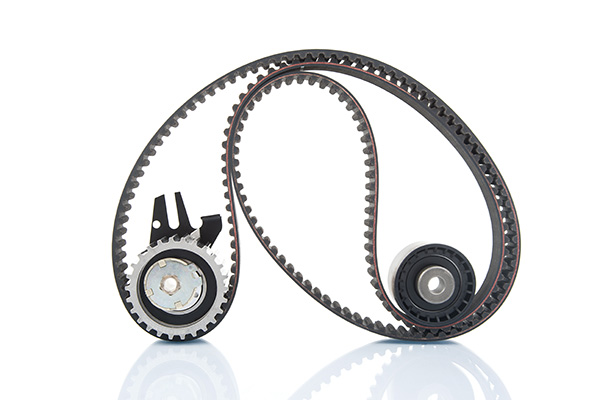
Your car's timing belt is one of those crucial components that often goes unnoticed—until it fails. Responsible for synchronizing the crankshaft and camshaft rotation, the timing belt ensures your engine's valves open and close at the proper times during each cylinder's intake and exhaust strokes. A failure of this belt can lead to severe engine damage, making it vital to know when and why you should replace it. We will explain the importance of timing belt maintenance, the signs it needs replacing, and the recommended intervals for replacement.
Why The Timing Belt Is So Important
The timing belt plays a pivotal role in your engine's operation. It ensures that the engine's valves open and close in harmony with the pistons. If this synchronization is disrupted, the engine can misfire or even incur significant damage. Most vehicles use a rubber belt, though some modern engines might use a timing chain instead. While chains are generally more durable, belts are prone to wear and tear over time and need regular replacement.
Manufacturer's Recommendations
Typically, manufacturers provide specific guidelines on when to replace the timing belt. These recommendations are usually based on mileage and time. For many vehicles, the timing belt should be replaced every 60,000 to 100,000 miles, or approximately every five to seven years. However, this can vary widely between different makes and models. It's essential to consult your owner's manual for the exact recommendations for your vehicle. Ignoring these guidelines can result in the belt breaking unexpectedly, leading to costly repairs or even complete engine failure.
Signs Your Timing Belt Needs Replacement
Although following the manufacturer's recommendations is the best practice, there are also signs that your timing belt may need replacing sooner. One of the most apparent signs is a ticking noise coming from the engine, which could indicate that the belt is beginning to wear out. Engine misfires are another symptom, as the worn belt can affect the engine's timing. If your car experiences difficulties starting or runs roughly, this could also point to a timing belt issue. Visible wear and tear on the belt, such as cracks, fraying, or glazing, are clear indicators that it needs replacement. Regular inspections can help catch these signs early.
Why Proactive Replacement is Crucial
Replacing your timing belt proactively can save you from significant headaches and expenses down the line. A broken timing belt can cause extensive damage to the engine's valves, pistons, and other components. In interference engines, where the valves and pistons occupy the same space in the cylinder but at different times, a broken timing belt can lead to these parts colliding, resulting in severe damage. By replacing the timing belt at the recommended intervals or at the first signs of wear, you can prevent such catastrophic failures and ensure your engine continues to run smoothly.
Cost of Timing Belt Replacement
While the cost of timing belt replacement can vary depending on the make and model of your vehicle, it generally costs around $1,000, including parts and labor. Although this might seem like a significant expense, it pales in comparison to the potential cost of repairing an engine damaged by a broken timing belt, which can run into the thousands of dollars. We recommend replacing other components, such as the water pump and tensioners, at the same time, as these parts often wear out simultaneously and can save you on labor costs in the long run.
Is your car approaching the recommended mileage for a timing belt replacement? Visit Villa Marina Auto Carefor reliable and professional service. Keep your engine running smoothly and avoid unexpected breakdowns.